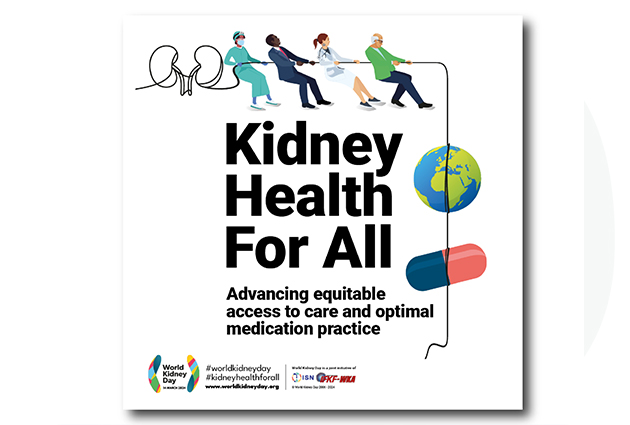ISN Constituency Statement – Prioritizing the NCD interventions in Universal Health Coverage benefit packages – at the WHO 154th EB
WHO 154th Executive Board
Agenda Item 6: Universal Health Coverage
This statement is made by the World Heart Federation on behalf of the Global Alliance for Tobacco Control, International Diabetes Federation, International Society of Nephrology, World Hypertension League, and World Stroke Organization.
While we welcome the WHO and Member States’ recommitment to achieving UHC in the 2023 political declaration, we take this opportunity to highlight the need to prioritize essential circulatory health services in UHC benefit packages to protect individuals and households from catastrophic out-of-pocket expenses, which slow socioeconomic development and contribute to rising poverty rates.
To reach UHC, countries must determine which essential health services should be provided through cost-effective health benefit packages, considering disease burden, financial risk protection, socioeconomic impact, and equity.Circulatory diseases, as the leading cause of death and disability worldwide and the leading cause of catastrophic health expenditure in LMICs, meet all these criteria. NCDs are preventable and treatable and must therefore be prioritized in UHC packages; nevertheless, coverage of NCD services in UHC packages is seriously lacking relative to other areas.
Drawing on the HEARTS Technical Package, Pen+ Interventions, and updated Appendix 3 document, we recommend prioritizing the following interventions in UHC benefit packages:
- Screeningand counselling on risk factors including unhealthy diet, tobacco use, harmful use of alcohol and physical inactivity
- Opportunistic screening for CVD/stroke risk factors including blood pressure, glucose and urine albumin
- Primary prevention of rheumatic fever and RHD
- Access to affordable and quality screening and treatment for hypertension, diabetes, CVD, and kidney disease, including:
- Provision of aspirin for suspected cases of myocardial infarction
- Management of ischemic heart disease, stroke and peripheral artery disease through provision of antiplatelet, anticoagulant, blood pressure lowering, and blood lipid lowering
- Management of albuminuric kidney disease with ACEi, ARBs and SGLT2 inhibitors
We call on decision-makers to:
- Expand coverage of essential health services for circulatory conditions to all by 2030
- Prioritize primary care in public health funding and human resources for health allocation plans
- Include existing evidence-based, cost-effective interventions for circulatory diseases in UHC benefit packages at primary care level
This will significantly reduce the burden of circulatory diseases, decrease catastrophic expenditures for health, and help all Member States achieve UHC.










